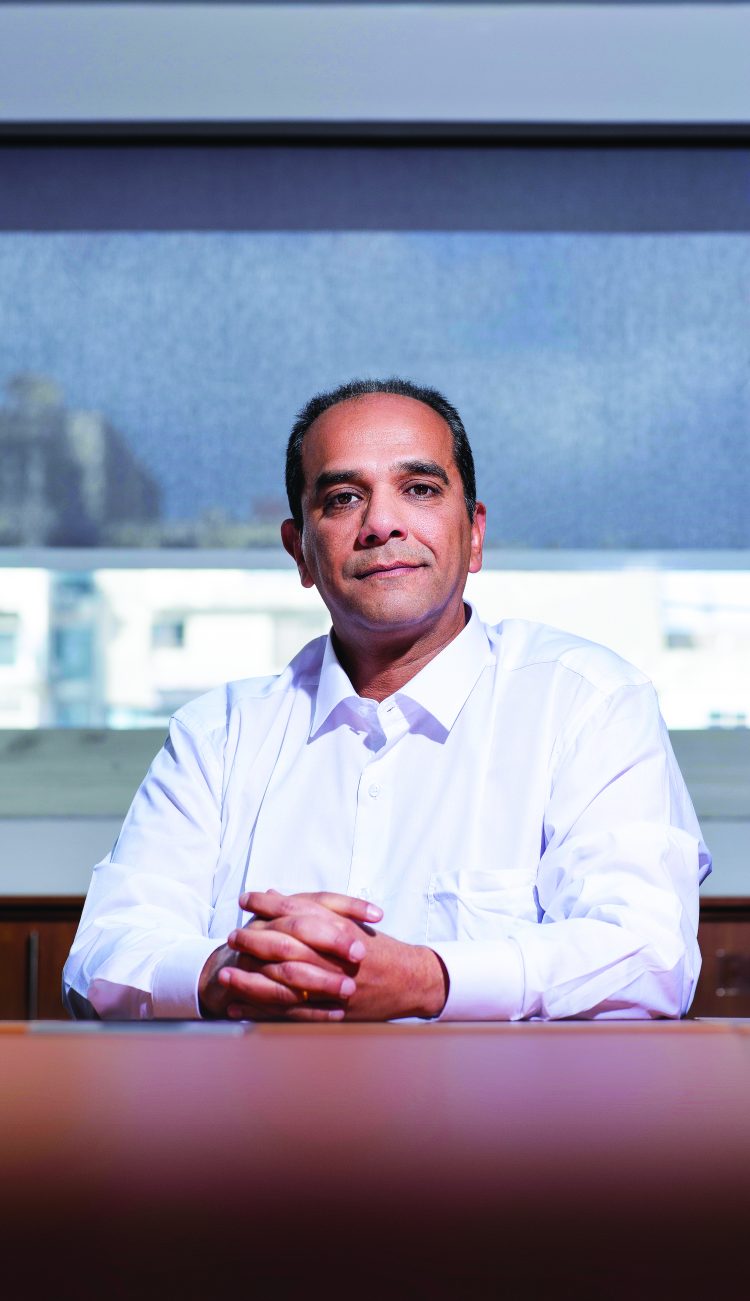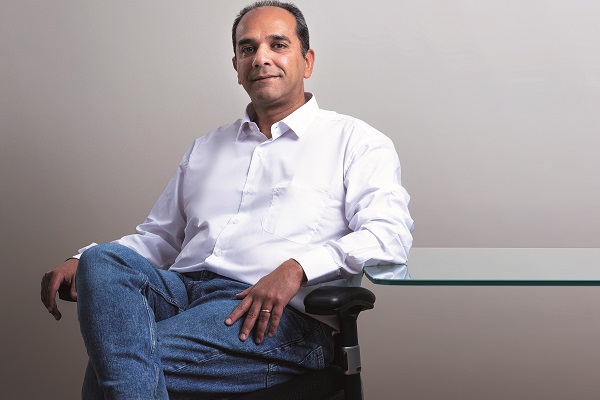MENA streaming platform Shofha has been running a quiet but profitable operation in the region’s OTT space since its launch in 2016. In an exclusive interview with Vijaya Cherian, CEO Medhat Karam outlines the OTT roadmap and strategies that have made the platform successful.
One of the Arab world’s best-known secrets is a UAE-based streaming platform that has quietly infiltrated the homes of thousands of Arabs over the last few years. Shofha, which means ‘watch’ in Arabic, has maintained a low profile since its launch seven years ago as a product of tech giant ArpuPlus, owned by A15, one of the MENA’s leading early-stage VC funds.
But that changed and the platform made headlines when it recently acquired exclusive MENA streaming rights for Egyptian romcom Bahebak, starring Tamer Hosni. It was top of the charts in the Middle East and garnered $4.26m in MENA gross box office revenues on its opening weekend in theatres last July.
“Bahebak was a game changer for us,” agrees Medhat Karam, CEO of Shofha and ArpuPlus, a multi-million-dollar mobile value-added services company in MENA and Southeast Asia. “The market is full of giants and we are not playing in that league, although we are owned by a giant. We cater to the masses – people in the middle and at the bottom of the pyramid. We don’t do 50 productions a year, we don’t get the latest and the most expensive content, and we don’t target those who pay for the latest and the best content.
“Instead, we have a very good library of Arabic-language content that has a unique local flavour for each of the countries we operate in. Shofha is currently available in 15 countries in the MENA region, and its main USP is that it is integrated with 30 telco operators for billing and marketing. Our content is localised for Egypt, Tunisia, Saudi Arabia, the UAE, Algeria, Palestine, Qatar, Kuwait and Bahrain, among others.”

Content, therefore, is sourced from local producers. “We look for smart acquisitions and smart productions. We scour the market for content that offers the best value for money. They are not the most expensive productions or the most recent. Ours would be a couple of years old, but they would be content people would have wanted to watch but missed in the first few windows.”
Having said that, the company has started investing cautiously in a few productions of its own in the last couple of years.
“We are not looking at anything as prolific as other platforms,” says Karam. “We are doing around four to six productions a year, and that’s a mix of movies, series and programmes. But we do have something new added to our content library every month.”
One of Shofha’s biggest USPs is its integration with 30 telco operators, thanks to ArpuPlus and its close ties with the telco market.
“Telco operators typically have hundreds of thousands of subscribers so we have leveraged that, especially in markets like Egypt and Saudi Arabia, and in that way we have differentiated ourselves from the other streamers. I think we have a very good footprint of integrations with operators; 30 operators is a large number,” explains Karam.
The platform’s business model reflects this. “Because our focus is on the masses, our subscription strategy includes daily, weekly and monthly options. This gives our viewers the flexibility to subscribe for a few days, watch the show they came to watch and exit. So our strategy is very different from say a Netflix or a Disney.”
Despite this, Karam proudly claims that Shofha has been successful.
“We have always been very conscious of our investments when it comes to technology and content. At present, we follow a subscription video-on-demand model. A lot of our users prefer daily subscriptions. They may see something they like and get it added to their mobile bill, which is how most of them pay. Our fee for a day is around AED 1.5 ($0.41). For a month, it is about AED 15 ($4).”
He says the easy-to-use entry and exit from the platform has helped endear the platform to users. “The ability to reach most of the people in a very simple and very nominal way, and in a very local way, has made us popular among subscribers. If you open our app for Tunisia, for instance, you will see a lot of Tunisian series.”
 But having seen a 20-25% spike in user engagement with the new strategy to introduce the odd high-impact production, Karam says the team is now experimenting with various ways to bring in subscribers and ensure retention.
But having seen a 20-25% spike in user engagement with the new strategy to introduce the odd high-impact production, Karam says the team is now experimenting with various ways to bring in subscribers and ensure retention.
“With the Bahebak acquisition, we tried a different strategy from our usual and definitely it was a game changer for us. It is a good strategy as long as you’re doing it carefully to manage your profitability. Our intent is to continuously surprise our viewers with teasers in the form of a brand-new production or a big-impact movie. But it won’t be with the frequency that you see with some of the other high-profile streamers, and we don’t do Ramadan specials. I think the market is flooded with enough productions during the Holy Month. We will continue to be very selective with these game changers.”
Occupying a different niche from the top streamers does not mean Shofha is free of competition. In fact, it has a bigger challenge with players in the IPTV market and pirates, says Karam. Shofha will eventually be prepped for a sale, and Karam is a veteran in this area of the business.
An engineering graduate, Karam has had the opportunity over the years to become well versed in internet business, mobile VAS and managing software companies. He has an outstanding record in managing budgets, setting strategic directions for companies, helping with product development and identifying potential opportunities and clients. Under his leadership, Shofha is being moulded as a profitable product that will continue to do well when it has passed into different hands.
Karam elaborates: “ArpuPlus’ parent company A15 works with several big names such as Facebook, Twitter, PayPal and companies in the fintech, e-commerce, social media management, software development and hosting space. Our objective is always to spin off companies from ArpuPlus. We act as a venture builder, where we spin off companies, grow them and sell them. We did that with TPay, which was launched in 2014 to enable mobile payment, and sold it in 2018 to Helios, a British Nigerian investment group. We are building Shofha to take a similar route, and it’s one of many products emerging from the ArpuPlus stable.”
But for now, the company is focused on making the platform stronger and expanding into new markets. While it currently has only a subscription model, there are plans to explore other business models and expand into new markets.
“Currently, we continue to see huge growth in the SVOD domain. The whole number of subscribers in the MENA region is still just a fraction of the total population, and there is so much scope to attract more viewers. Right now, we are looking to add more smart productions. For instance, we have just produced a six-episode drama series – generally we will be producing them in the range of six to ten episodes. We are also contemplating a FAST model within the next 18 months, but we have to see how to do it without cannibalising our SVOD model.”
Karam concludes: “We are also looking to expand into Africa. That’s a huge market and is just ideal for a platform like Shofha.”













































































